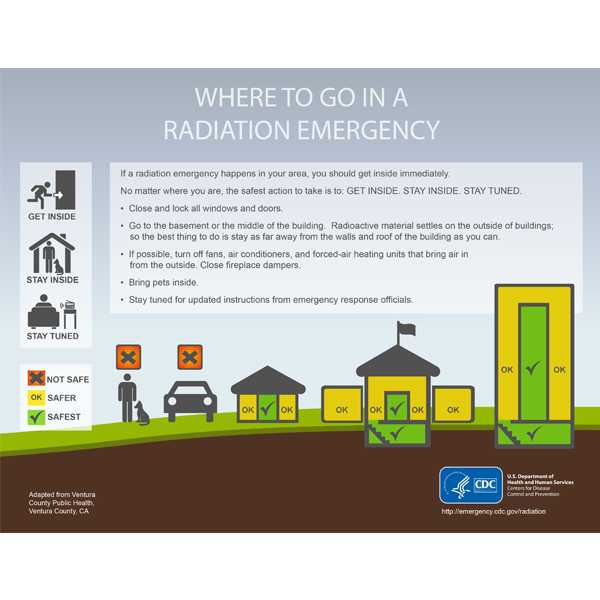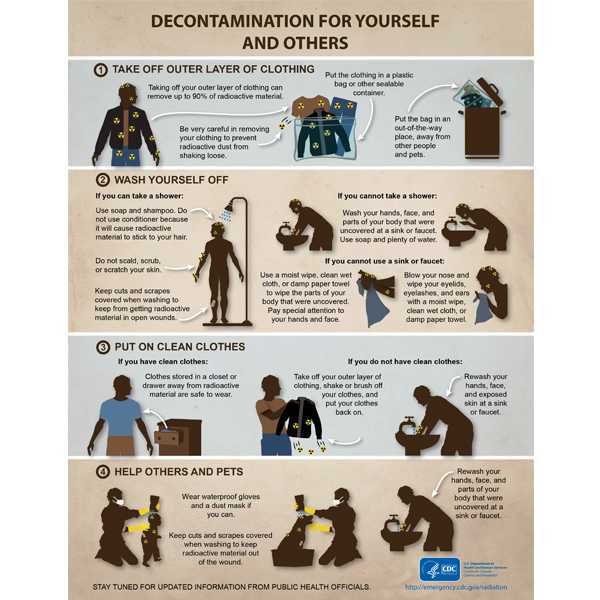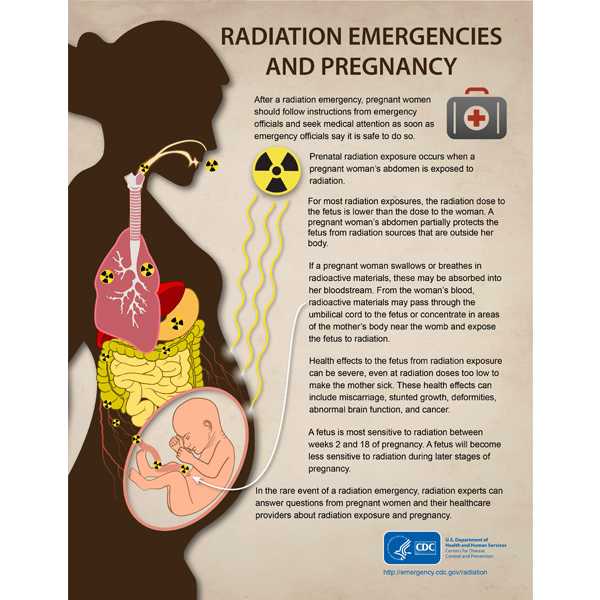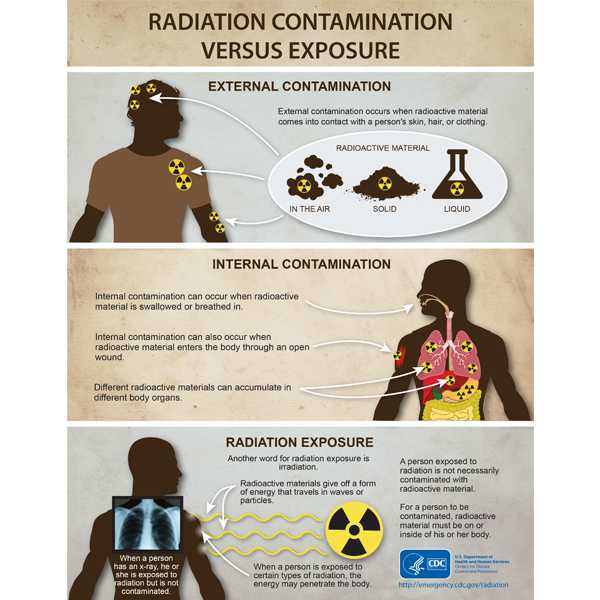Protect Yourself and Your Family in a Radiation Emergency
Get inside. Stay Inside. Stay Tuned.
Every day, we are exposed to small amounts of radiation from the sun and the earth. Radiation can affect the body in a number of ways, and the adverse health effects of exposure may not be apparent for many years. These can range from mild effects, such as skin reddening, to serious effects such as cancer and death. This depends on the amount of radiation absorbed by the body (the dose), the type of radiation, and for how long the person was exposed. In large doses, radiation can cause acute illness or skin burns, or jeopardize a developing fetus.
A radiation emergency involves the release of significant amounts of radioactive materials into the environment, and whether it’s an accident or an intentional act, the result is health and safety challenges for the public. Examples of radiation emergencies are a nuclear power plant accident, a nuclear explosion, or a dirty bomb.
Knowing the right steps to take in a radiation emergency can save lives and protect health.
Get Inside
Get inside a building and take shelter for a period of time instead of leaving. The walls of your home can block much of the harmful radiation. Because radioactive materials become weaker over time, staying inside for at least 24 hours can protect you and your family until it is safe to leave the area.
Stay Inside
Getting inside of a building and staying there is called "sheltering in place." Once you get in a building, there are things you can do to stay safe inside. Always listen for additional instructions from emergency officials and radiation experts. Decontaminating yourself will lower your exposure to harmful radioactive material. Even just removing your outer layer of clothing can remove up to 90% of radioactive material.
If you have loved ones in schools, day cares, hospitals, nursing homes, or other facilities during a radiation emergency, stay where you are! Going outside to get loved ones could expose you and them to dangerous levels of radiation. Children and adults in schools, daycares, hospitals, nursing homes, or other places will be instructed to stay inside until emergency responders know that it is safe to evacuate. Facilities have plans in place to keep everyone safe inside.
Stay Tuned
It will be important to stay tuned once you get inside for updated instructions from emergency response officials. As officials learn more about the emergency, they will be communicating the latest information to the public. Television, radio, and social media are some examples of ways that you may receive information.
You should not leave your building or place of shelter until officials or emergency responders have said it is safe, unless you have a life-threatening condition.
Be Prepared for a Radiation Emergency
What can you do before a radiation emergency happens so that you are prepared? At home, put together an emergency kit that would be appropriate for any emergency. A battery-powered or hand crank emergency radio, preferably a National Oceanic and Atmospheric Administration (NOAA) weather radio is important to have for any emergency situation.
Check with your community leaders, child's school, the nursing home of a family member, and your employer to see what their plans are for dealing with a radiation emergency.
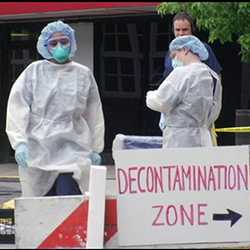
Contact Information
NCEH/ATSDR Office of Communication
(770) 488-0700
envhealthmedia@cdc.gov
Spokesperson
Robert C. Whitcomb, Jr., PhD, CHP
Robert Whitcomb's BIO

"The most important steps you can take to protect yourself, your family, and your pets in a radiation emergency are to get inside or take shelter, stay inside to reduce your exposure to radiation, and stay tuned for further instructions on what to do."
Robert Whitcomb, Jr., PhD, CHP- Branch Chief, Radiation Studies Branch, National Center for Environmental Health.
Related Links
If a radiation emergency occurs, get inside, stay inside and stay tuned. Learn more: http://bit.ly/2b2m5xH
Are you prepared in case of a #radiation emergency? What you need to know: http://bit.ly/2b2m5xH
Talk with your family and friends about what to do in a #radiation emergency. http://bit.ly/2bgCBaU
Know how to protect yourself, your family and your community in a #radiation emergency. http://bit.ly/2b2m5xH
In a #radiation emergency, #radiation could affect the body in a number of ways. Learn how: http://ow.ly/SitAa
In a #radiation emergency, you can take steps to remove #radioactive material from your body. http://ow.ly/SitkG
Food and water safety is important after a #radiation emergency. Learn more: http://ow.ly/Sitp3
- Page last reviewed: September 7, 2016
- Page last updated: September 7, 2016
- Content source:


 ShareCompartir
ShareCompartir
